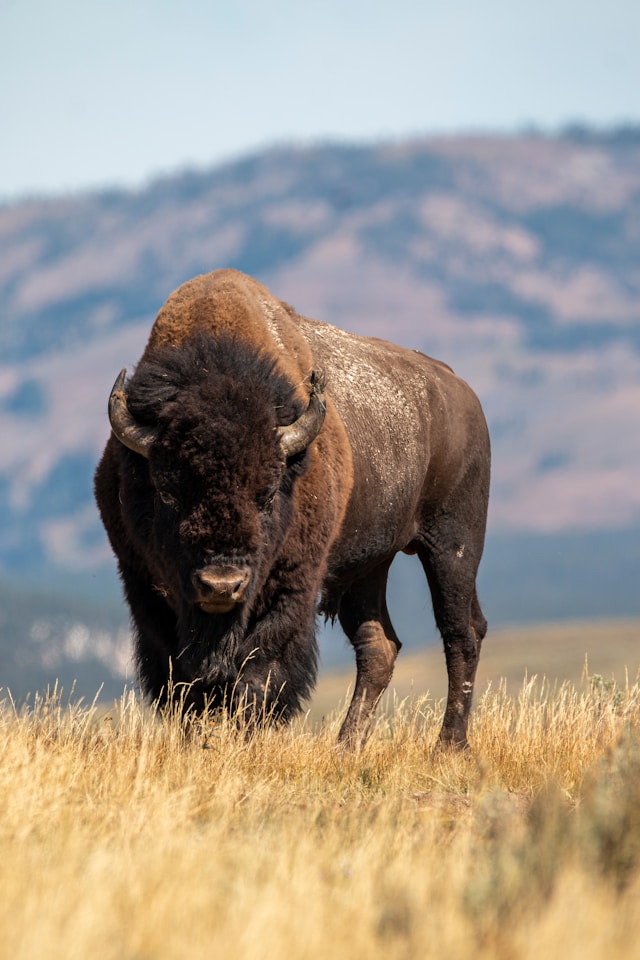In the late 1790s, a decimation of the bison population began. Bison were a primary source of food and materials for Alberta’s first human residents [3].
However, as more Europeans began arriving in the region (Europeans had been coming to the West since the 17th century), they started to hunt the bison population for food and also with the purpose of negatively affecting the Aboriginal population [4].
During the eight decades (1791 – 1873) that Europeans were hunting the bison, there was also a multi-decadal drought. The drought impacted water supply for humans, and also reduced the water supply and available forage for the bison. The drought and the ongoing hunting efforts decimated the bison herds “nearly to extinction” [5].

Captain John Palliser – an explorer and geographer – was funded by the British government to embark on a scientific exploration in present-day western Canada. His purpose was to survey the land (and whether there was any potential for agriculture) and explore possible routes for the Canadian Pacific Railway. Palliser’s adventure became known as the “Palliser Expedition”, and lasted from 1857 – 1860.
When Palliser arrived in western Canada the region was in the midst of a multi-decade drought. Palliser explored what is now known as the “Palliser Triangle” – a triangular area of about 200,000 square kilometres that spans present-day southern Saskatchewan and southeastern Alberta. The Palliser Triangle is now considered to be both the breadbasket of the country, but also the driest part of the Canadian Prairie provinces. Palliser famously declared the region as being unsuitable for settlement – it was simply too dry.
The federal government ignored Palliser’s warning that the Prairie Provinces were too dry for successful settlement, and began to encourage immigration to the region and advertising the area as “fertile ground to establish farm operations [6].
The Canadian Pacific Railway reached present-day Alberta in 1883, opening up the area to more newcomers. By the late 1890s, immigration to the west was well underway, despite a decade-long drought that occurred from 1885-1896.
The Canadian government eventually recognized that drought would be problematic for future settlement in the West. This concern was addressed in following years by the assessment of possibilities for irrigation in the region.
We provide Canadian educational resources on water practices to promote conservation and sustainability. Our team crafts current and relevant content, while encouraging feedback and engagement.
The Canada WaterPortal is a registered charity, #807121876RR0001
We recognize and respect the sovereignty of the Indigenous Peoples and communities on whose land our work takes place.
© 2025 All Rights Reserved.